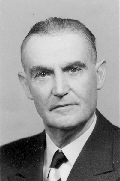
 |
Dr. David P. Lane Personal Chair in Molecular Oncology University of Dundee; Director, Cancer Research Campaign Cell Transformation Group, The Cancer Research Campaign of Biochemistry, University of Dundee, Dundee DD1 4HN, UK |
 |
Dr. Arnold J. Levine Chairman and the Harry C. Wiese Professor of Molecular Biology, Princeton University, Princeton, New Jersey, U.S.A. |
Dr. David Lane and Dr. Arnold Levine shared the 1993 prize for their outstanding work on the tumor suppressor gene p53. The protein p53 was discovered in 1979 by research groups working with David P. Lane and Arnold J. Levine. Over the next ten years, the gene for p53 gene acted as a tumor suppressor gene. Its role in the cell was to prevent altered cells form arising which leads to cancers. About 60 % of cancers developed in people over a lifetime contain mutations in the p53 gene. It is the most commonly altered gene detected sin these cancers. It now appears that the function of the p53 protein is to respond to damage of the genetic information, DNA, by either moving the cell into a program for death and elimination from the body or permitting cellular repair processes to act prior to duplication of the DNA and the cell. In this way, the p53 protein, sensing DNA damage, minimizes mistakes in the genetic information and eliminates the appearance of genetically altered cells that lead to cancer.
| © The Webmaster of the Department of Physiology |

 |
Freitag, 16. Dezember 2005 |